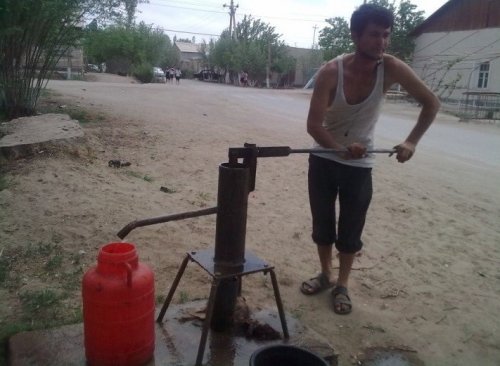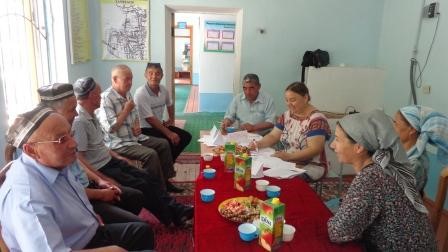

PROJECT TITLE: WB Project: P147341 - Social Impact Analysis of Water Supply and Sanitation Services in Central Asia
CLIENT: World Bank
PERIOD: 2014
PROJECT AIM
This Social Impact Analysis (SIA) aims to helpbreak the current cycle of economic and social costsby increasing the accountability of water and sanitation providersto their customers by i) communicating customer perspectives, readiness and capacities to acceptpotential Water Supply and Sanitation Services(WSS) sector reforms and ii) providing evidence ofthe need and opportunity for such reforms.
The objectives of this SIA were to: (i) provide insight into consumer experiences and needs, and monetary and non-monetary costs of the current conditions of WSS services on householdsand (ii) use this evidence to inform discussions around WSS sector strategy and reform needs and options in Uzbekistan.
DESCRIPTION OF ACTUAL SERVICES PROVIDED IN THE ASSIGNMENT
This SIA adopted a mixed methods approach (including both quantitative and qualitative research activities) reliant on multiple information sources.
-Desktop review and stakeholder mapping: Al Mar Consulting conducted a desktop review of available sources of information and data to analyze the overall WSS policies at governmental and municipal level. Any other policies and social programs of relevance was also included in the review. Al Mar Consulting was expected to share background documents in English and/or Russian with the World Bank. The review assisted in identifying the major formal and informal stakeholders and their respective roles, interests and interactions. This exercise was then be used to identify key informants for in-depth interviews.
-Household questionnaire: Quantitative data were collected from stratifiedrandomsamples. Al Mar Consulting developed the household questionnaire, with the World Bank providing a guide to help with question structure and formulation. The questionnaire and the sample size (it was a total of 310observations, including 10pilot surveys) were confirmed between the World Bank and Al Mar Consulting following pilot testing.A database and aggregated frequency tables were presented to the World Bank.
-Focus group discussions (FGDs): A total of 17 FGDs were conducted (including one pilot FGD). FGDs were filtered by gender and welfare level. A separate write-up for each FGD was provided in English. Write-ups were detailed summaries.
-‘Mini’ case studies of households & public buildings: These type of interviews aim to understand behaviors and rituals – in this case, consumers’ interactions with WSS provision and their coping strategies. Interviewers interact directly with consumers in their natural setting (households/community) while they were performing tasks, with the interviewer asking questions about what they were doing and why (as necessary). Questions, coupled with direct observation of users as they perform activities, can bring important details of behaviors to light. A total of 10‘mini’ case studies were conducted across both households and public buildings (e.g. school, medical clinic). A separate write-up for each ‘mini’ case study was provided in English.
-Individual interviews: 17In-depth, semi-structured interviews were conducted with service providers and other stakeholders in WSS provision / management across municipal and local levels. Al Mar Consulting prepared a list of stakeholders to be interviewed which was reviewed by the World Bank.The range of issues for discussion reflectedthe objectives and scope of the SIA. A separate write-up for each in-depth interview was provided in English.